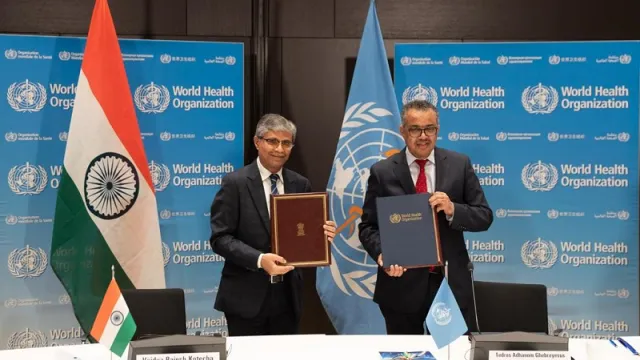WHO establishes traditional medicine global centre in India

WHO establishes traditional medicine global centre in India
The World Health Organization (WHO) has launched its Global Centre for Traditional Medicine (GCTM) in India.
GCTM is billed to unlock potential by blending ancient healthcare practices with modern science.
The hub, which has seen India inject into it $250 million will focus on four strategic areas: evidence and learning; data and analytics; sustainability and equity; and innovation and technology.
Similarly, the GCTM knowledge hub is intended to create a body of reliable evidence and data on traditional medicine practices and products to help inform standards and the cost-effective use of methods that go outside conventional medicine.
“Harnessing the potential of traditional medicine would be a game-changer for health when founded on evidence, innovation and sustainability,” WHO said, noting that traditional medicine formed part of the growing health and wellness industries.
WHO chief Tedros Adhanom Ghebreyesus who joined Indian Prime Minister Narendra Modi in the Gujarati city to lay the foundation stone said that around 80 percent of the world's population is thought to use traditional medicine, such as herbal mixtures, acupuncture, yoga, ayurvedic medicine, and indigenous therapies.
Read also: At least 3.5 million people facing starvation as Kenya’s drought worsens
“For many millions of people around the world, traditional medicine is the first port of call to treat many diseases.”
“The WHO GCTM that we are launching will help to harness the power of science to strengthen the evidence base for traditional medicine,” he said, to optimize its use for health and well-being around the world.
The WHO said that traditional medicine was increasingly prominent in modern science, with 40 percent of approved pharmaceutical products currently in use deriving from natural substances.
According to the UN health agency, traditional medicine is the knowledge, skills and practices that indigenous and different cultures have used over time to maintain health and prevent, diagnose and treat physical and mental illness.
Commenting on the project, India's Prime Minister Narendra Modi said traditional medicine encompasses a holistic science of life and would gain global importance in the coming 30 years.
“Our traditional medicine is a repository of hundreds of years of accumulated knowledge,” he said.



